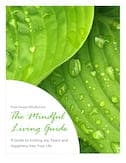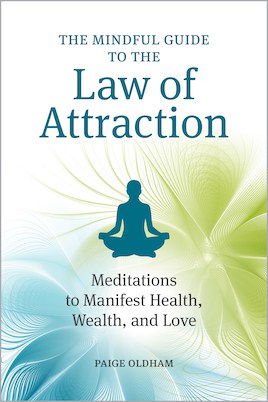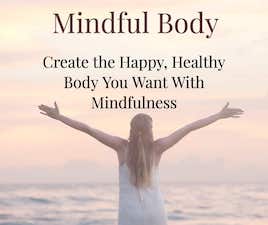Growing up, about 98% of my parents’ friends and my friends’ parents were divorced. My parents were unhappily married and stayed together for twenty-five years “for the kids.”
I didn’t grow up with any great relationship role models. Because of this, I repeated problematic patterns that always led to the same end result: my boredom with and ending of the relationship.
After repeating this pattern for a few decades, I finally tired of it and chose a partner that I didn’t think I could ever be bored with. While this ended up being true, we were control freaks trying to control the life out of each other. Still not productive.
All along, I was missing one of the most critical components to a successful relationship: empathetic, meaningful communication.
As an intense introvert, communication has never been my strong suit.
On a two-week road trip with my first husband, we could go for hours without saying anything to each other (he was an introvert too). We thought that a “good relationship” was one where we didn’t fight. If I made him angry (usually without knowing it), the only sign I had that there was a problem was that he gave me the cold shoulder and didn’t speak to me at all for a couple days.
I thought things would be different with my current husband (who I’ve married twice after divorcing him) because he’s more communicative. While we talked more, we didn’t really listen to each other. We were usually more concerned with making our point than listening to the other person. This was one symptom of our control issues.
Time for a Change
After repeating the same type of argument so many times (all too common in most relationships), I saw our pattern and yearned to put an end to it. I wasn’t sure how but knew that doing the same things would lead to the same result.
In an attempt to change the pattern, I chose to simply not respond in the same defensive way. I chose silence because, in the absence of defensiveness, I didn’t know what to say.
That silence gave me the opportunity to actually listen to what my husband was saying. It gave me the chance to empathize with him and see how my behavior might be contributing to the problem. And it gave me the time to think of a response to his needs instead of reiterating my own needs.
I realized that, if I didn’t listen to him, I could never truly understand and meet his needs. Also, there was no way he would listen to me and respect my needs. I had to learn how to communicate. My marriage depended on it.
Communication through Questions
 I wish I had known about Barrie Davenport’s latest book, 201 Relationship Questions: The Couple’s Guide to Building Trust and Emotional Intimacy. It’s the guide I needed to help me ask the right questions, without blame or defensiveness.
I wish I had known about Barrie Davenport’s latest book, 201 Relationship Questions: The Couple’s Guide to Building Trust and Emotional Intimacy. It’s the guide I needed to help me ask the right questions, without blame or defensiveness.
“We go through extensive training to drive a car and spend years in school preparing for a career, but there’s no expected or required training when it comes to this most vital part of our lives – our love relationship. No one teaches us how to be a good partner, how to nurture the health of the relationship, and how to resolve differences in a mature way. We jump in like blind fools, certain that love will conquer all.”
This book helps you to be that good partner.
It’s designed to be read by you and your partner together. The book describes the best environment for the two of you to create while you work through the questions.
“The most successful, intimate relationships involve proactive communication before a conflict ever arises.”
Barrie offers about ten questions in twenty different areas like communication, emotional needs, personal boundaries, sex and affection, personal habits, disagreements and differences, past wounds, time together and alone, friends, family, health and fitness, work, children, money, goals and dreams and others.
Each question is followed by other questions to help you dive a little deeper into the topic.
The questions help both of you share your needs and desires in a safe environment. They also require you to look deep within yourself for what your true desires and motivations might be.
“A strong question compels us to search within to find the answer, leading to profound moments of self-awareness and personal growth.” ~Barrie Davenport
In our busy lives, we tend to skim the surface in an effort to get things done. In the process, we lose our connections to ourselves and our partners. This book helps to rekindle those connections.
“An intimate relationship itself is a living, breathing entity that must be nurtured and cared for daily, above our own individual needs or frustrations. If you want your relationship to work, you both must work at your relationship and care for it tenderly. It can’t be one-sided, and it can’t be neglected. We have to talk about what’s bugging us, what we need from each other, and our dreams and disappointments. And we have to listen, really listen to what our beloved is saying so he or she feels heard and understood.”
Give yourself, your partner and your relationship the gift of what 201 Relationship Questions can offer. You’ll definitely learn something new about yourself and your partner. After seventeen years of marriage, my husband and I did.
 Barrie Davenport is a self-improvement thought leader, certified coach, and online course creator. She’s also the author of several best-selling self-improvement books including Peace of Mindfulness; Finely Tuned: How to Thrive As a Highly Sensitive Person; Self-Discovery Questions; Confidence Hacks; and 10-Minute Declutter.
Barrie Davenport is a self-improvement thought leader, certified coach, and online course creator. She’s also the author of several best-selling self-improvement books including Peace of Mindfulness; Finely Tuned: How to Thrive As a Highly Sensitive Person; Self-Discovery Questions; Confidence Hacks; and 10-Minute Declutter.
Barrie has been a featured writer for The Huffington Post, Zen Habits, and Problogger among other top blogs. She is the founder of the three popular courses: Simple Self-Confidence, Sticky Habits, and Path to Passion. Prior to her work online, Barrie spent over 20 years as a public relations executive and consultant. Barrie writes weekly at LiveBoldandBloom.com.
Create the life you want: Combine the law of attraction with mindfulness
The law of attraction suggests that our positive or negative thoughts bring about positive or negative experiences. My latest book, The Mindful Guide to Law of Attraction, pairs that belief with the powerful practices of mindfulness. Through intentional breathing, writing, and engaging, you’ll hone a method for manifesting health, wealth, and love―the elements of happiness.
Let the law of attraction work for you by adopting its basic steps of identifying and visualizing the things you desire. Then use 45 practical meditation techniques included in the book to achieve awareness. By concentrating your positive energy on obtaining your wants, you’ll give yourself permission to receive them.
To your happiness! ~Paige

You can find this book at Amazon, Barnes & Noble, Books-A-Million, and Indigo.







 The Mindful Living Guide
The Mindful Living Guide




The most important factor, by 70%, for happy couples to feel satisfied is the quality of their friendship.
I totally agree with you Hope. Kids, careers, projects and so many other things can pull our attention away from the romantic relationship. It’s the friendship that’s always there to bring you back together.
Hi .. Thanks for sharing a very meaningful and informative post. Great Read.
Thanks so much Sherill! Have a wonder-filled day!